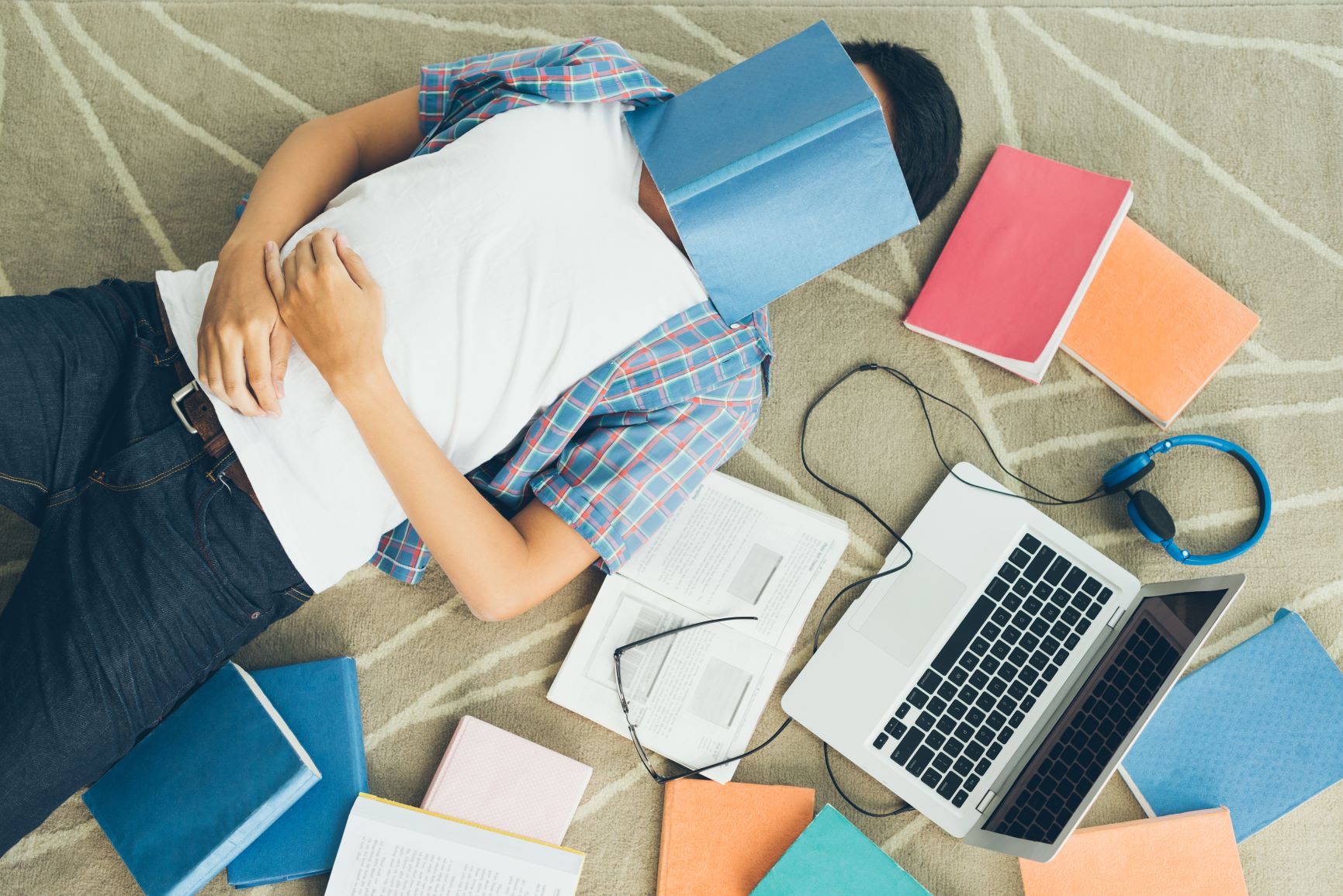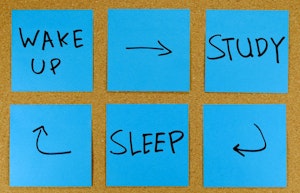About 17 million young adults are starting college this fall. It’s an exciting time but also a very demanding one. College students experience a high level of stress with expectations to perform academically, athletically and socially.
It’s proven that sleep affects performance, and unfortunately for college students, the demands they face are precisely why it is difficult for them to get the sleep they need. Because they are under a lot of stress, they sometimes choose behaviors to cope with that stress that ultimately affect their sleep adversely.
If you are going back to school in the next few weeks, or know someone who is, share these three simple tips for better sleep all year long.
Maintain a regular sleep schedule… yes, even on the weekend!
We can see the eye rolls now. This is a lot easier than it sounds because your body wants you to go to bed around the same time every night and sends you signs (which often get ignored) for you to stick to it. Just as you have a class or athletic training schedule that you are supposed to follow, it only makes sense that you follow a sleep schedule in order to keep up attendance and grades.
We know about the parties – especially the ones in the middle of the week – so just try not to vary your sleep schedule by more than an hour or so as a result of the “unplanned activities.” Big swings in your sleep pattern have the same effect as even mild to moderate sleep deprivation.
Limit your naps.
College students often make up for lost sleep by napping in between classes or on weekends. Naps are good, but they shouldn’t be a substitute for the recommended 7 to 9 hours of quality sleep. You’ve probably heard that sleep is not like a bank account; when you are short on sleep, you can’t make up the deficit by sleeping more the next day or night.
Power naps of 20 to 30 minutes are great ways to refresh or reboot – and they can also keep you from missing class, if you’re sneaking in those zzzz’s between lecture and lab.
Avoid caffeine, alcohol and nicotine close to bedtime.
Refrain from rolling those eyes at this just long enough to read why these substances really mess with your sleep.
 Caffeine is a stimulant (we know you know) and can stay in the average body for several hours. While some people claim caffeine doesn’t affect them and they can fall asleep just fine, at the very least, it can impact the quality of sleep by waking you later and preventing deeper sleep.
Caffeine is a stimulant (we know you know) and can stay in the average body for several hours. While some people claim caffeine doesn’t affect them and they can fall asleep just fine, at the very least, it can impact the quality of sleep by waking you later and preventing deeper sleep.
While alcohol is a depressant and often makes people drowsy, it has been shown to increase night time awakenings resulting in poorer sleep quality.
Nicotine is a triple whammy because as a stimulant, it can make it more difficult to fall sleep, cause poor sleep due to withdrawal symptoms, and make it hard to wake up in the morning.

